Leadership Matters
Leadership Solutions and Consultation for Personal and Professional Development
Certified Leadership Coaching and Consultation for Personal and Professional development
The main prerequisite for leadership is for the aspiring individual to be motivated to be a leader. A lack of motivation to handle the enormous task of leadership will certainly end in failure. The second prerequisite for leadership is for the leader to have followers. Without followers there is no leadership. Leadership is relational – Leadership is psychological – Leadership leverages power appropriately – Leadership is an ART. Effective leadership greatly improves all business processes at all levels. Strong leadership provides product differentiation.
Servant leadership builds trust within the organization. Today’s leadership requirement has turned the hierarchical pyramid upside down. Influence, providing vision, fulfilling needs for acknowledgement, and creating meaningful work for employees is mandatory of current successful leadership. The pay differential for leaders vs. mid-level employees is vast and these higher salaries create higher expectations. Technology has created a world where work never stops and providing leadership around the ever changing organizational variables is integral.
Leadership has changed forever and soft skills such as relationship building, collaboration, and change management are the key metrics for producing success. This statement is uncomfortable for most leaders because it clashes with their leadership experience. The previous statement is not a blanket statement for the leadership of yesterday, but rather, a harbinger of the leadership of our current future. Soft skill leadership will provide a competitive advantage and competing companies will rush to leverage the art of true leadership. As the environment changes so does leadership practices in order to be financially solvent. The ultimate goal of all business is to make a profit which starts and ends with successful leadership.
Effectively setting up a quality leadership coaching contract is dependent on:
Identifying where change is required: What internal or external variables concerning (self, team, business) need change to capture desired results? What potential barriers exist and discovering the most efficient and effective way to confront and overcome potential issues?
What are the: Prospective leader’s desired business results – Desired leadership behaviors – Needed communication with organizational team to reach targeted results? The professional coaching impact can be measured effectively when specific “change factors” are clearly defined and understood by both the coach and client pre-engagement. S.M.A.R.T. goals need to be agreed upon in the coaching relationship and applied directly to each “change factor” for maximum results. These pre-steps provide a foundational business basis for the client that clearly measures coaching effectiveness and qualifies the financial investment.
Michelle on Leadership: 9 Systems of Leadership
The 9 systems of leadership are relational, psychological, leverage of power, leverage of skill, negotiation, sacrifice, responsibility, living in paradox, and vision. Michelle Obama’s Democratic National Convention speech effectively and seamlessly touched on the leadership system which is why her speech has been revered by the public and critics alike.
Relational
Her speech began with forming a connection and her perspective and life experience is relatable to 99% of all Americans. We understand the American struggle and the perseverance our ancestors displayed in desperate times for survival. She touched on a common connection that we all share and explained how she and her family share the same existence.
Psychological
Leadership is psychological and enlightened by the ability to manage the stress of others caused by changing times. She told stories that incited strong emotions related to challenging situations that her family and the American people have experienced. She expressed her understanding of these situations and how they as a family have dealt with these experiences in the past. She explained how President Obama does not flinch in times of challenge, but rather, he moves forward with wisdom and compassion
Leverage Power and Skill
Leadership leverages power to provide for the needs of others by creating security, individual respect for the self and for others, an aura of acceptance and unity, the spirit of love, by creating meaning opportunities, and encouraging achievement. Michelle Obama spoke about the foundation of her family which is love. Love is the central mandatory theme for all successful leadership. A leader without love is a castle without furniture. Michelle Obama vividly showed through her speech that love to her family is everything. She expressed that their love is strong – strong enough to share with the world. By diffusion, these concepts led to inspiration for many Americans and non-Americans around the world because her speech spoke to the fact that her and her husband started from humble beginnings. She spoke to the meaning of hard work and belief in a greater good. The concept of giving back and not shutting the door on others is an American value that we all need to embrace and giving back was central to Obama’s leadership.
Negotiation
Michelle’s calm demeanor is evidence of her high-level of self-awareness and superior confidence in her truth. She and her husband have shown the ability to control their emotions during difficult times and be incredibly accepting of conflicting feedback. These abilities are the skills that all leaders need in order to be successful. Michelle spoke strongly about her family values and how they align with American values. Leadership values depend on the culture it leads and the alignment of these values is essential to gain buy-in from the public at large.
Negotiating a situation with a steadfast commitment to values predicts choices during complexity. She spoke about the most difficult situations crossing the President’s desk and there being no justification for a specific right or a wrong answer. She explained that these pressure-driven choices are made based on the values the President holds and that his values are the same as America’s values. This concept enables the American public to embody the President’s mentality during difficult decision-making and develop a level of empathy because people could relate to the thought-process involved.
Sacrifice
Leadership is sacrifice and Michelle spoke about Barack not accepting higher paying positions in exchange for advocating for peoples’ rights because it was the right thing to do. President Obama has shown the mandatory motivation to be a successful leader. He has stood strong for something meaningful to others for most of his political career. Servant leadership builds trust and trust mediates the speed of success. Her speech was geared at regaining the trust they have lost through conflicting allegations that have portrayed their leadership in negative light. Michelle spoke about the sincerity they feel for the American people and the sacrifice that her family has made in order to obtain their leadership position. She spoke about the concern she had for her family adapting to the national spotlight.
Responsibility
Leadership is responsibility and without responsibility there is no leadership. The position of the President of the United States comes with the most situational responsibility in the world. Leaders accept large amounts of responsibility and thrive when the pressure is on. Michelle Obama spoke about enacting the new healthcare law and the responsibility President Obama felt that enabled him to make the difficult choices that were needed to complete the passing of the law. President Obama also took responsibility for the passing of the Equal Pay Act and repealing Don’t Ask Don’t Tell. These are controversial issues that are highly contested, but President Obama took a stand for what he believed was right based on his values system. Michelle spoke about the enormous responsibility that President Obama felt for the American people and the successes that were achieved because of the circumstances.
Paradox
Leadership is about living in paradox – living in moments of complete uncertainty with no clear answers – the “damned if you do and damned if you don’t” moments. Leadership is full of these moments and accepting an imperfect existence is essential to leading with a clear mind and a clear heart. Dwelling on past events or concern for current ambiguous situations greatly decrease leadership ability. A successful leader uses these paradoxical situations to inspire action and commitment through calmness and honesty. Leaders like Lincoln and Washington were masters of paradox and Michelle spoke about the challenges that faced the Obama leadership over the duration of the presidency. The challenges were vast and complicated. They were compared to the previous presidential challenges of Teddy Roosevelt during the Great Depression and the contention and confrontation of the GOP during every step of Obama’s leadership. These were some of the paradoxical dilemmas that his administration faced.
Vision
Leadership is vision and Michelle Obama spoke about Barack Obama’s vision from when they first met and how it has evolved over time. She spoke about his vision having a foundation in American values and his belief in the strength of America. His vision includes the opportunity for a superior education for everyone, the ability to get proper healthcare when needed, and the ability to live the American dream for all. She spoke of the vision of the next generation being greater than us and having the opportunity to provide for the vision. The vision is full of inspiration, commitment, concern, love, opportunity, empowerment, responsibility, and unity to make the vision a reality.
Michelle Obama is a great leader. Without Michelle there is no Barack. She is the foundation of their family and showed her strength and courage in front of hundreds of millions of people from around the world. In my opinion, she deserves the title of America’s first lady and has lived up to the title with style, grace, and leadership.
What is Leadership Development?
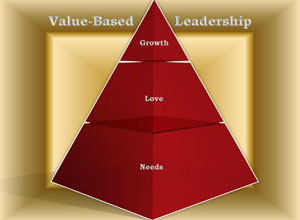
Leadership development is an activity that enhances Leadership ability within the defined leadership situation which concerns developing individuals through different developmental exercises. The myth associated with leadership is that it is developed from inborn traits, but the truth behind the mystery of Leadership is that this unique ability is learned. The art of leadership is based on a large-scale of traits that no one individual can possibly encompass, although, there are high potential individuals that possess many leadership factors that contribute to success at the highest level. Identifying strengths and enhancing those well defined abilities is integral to enhancing overall leadership ability and organizational psychologist have spent many decades deciphering the leadership code.
There are multiple factors that combine to form the personality of a leader. Not all great leaders are developed equally; to the contrary, most great leaders are drastically different from one another. Personality traits, emotional intelligence, social intelligence, self-awareness, and instinctual factors conjoin to form the prominent behaviors of esteemed leaders. Leadership is difficult and requires a well-trained individual to handle the immense responsibility. Everyone wants to be the highly respected leader, but no one wants the responsibility that comes with the position. This increases the difficulty associated with being a competent leader because of the difficulty associated with getting buy-in from followers. A leader is merely an individual with followers and there is no such thing as a leader without followers.
Overall awareness concerning leadership requirements an all important first step that prevents aversive communications that hinder relationship growth between leaders and followers. Transferring the appropriate knowledge to high potential leaders is essential for leadership success and accurate translation of leadership knowledge into action can greatly increase the aptitude of a respective organization. Distinct leadership abilities begin with the inner self – Self-awareness, self-control, high self-monitoring, an internal locus of control, and most importantly, the motivation to be the leader. No one can become a great leader without the motivation to be a leader – Warner Burke.
Executive Leadership Coaching

Transferring of leadership knowledge has been identified in several circumstances which include action learning, mentoring, multi-rater feedback, and more specifically, executive coaching. Multi-rater feedback has been shown in multiple research articles to be more effective with the implementation of executive coaching. Mentoring is a wonderful tool that transfers the ability to operate within a specific organizational culture, but lacks the confidential non-bias environment that is needed for true leadership development. Professional executive coaching provides this monumental approach to leadership development by infusing action learning and executive coaching together to expedite the developmental process.
High potential leaders are promoted for being technically great at what they do in regards to operations in certain niche areas. They have proved their worth to their organization by showing their dedication, work ethic, and high integrity when it comes to company functions. They have shown their ability to execute under stressful circumstances and have excelled by providing the highest quality of work. Their managerial abilities were exceptional and their successful operational style influenced positive overall group processes. They have learned to take on increased responsibility and have shown their ability to succeed as leaders. The developmental next step in the career game is to climb the hierarchical ladder to the next level which involves leading a larger amount of associates, increased responsibility, and relinquished control over multiple situations. This extreme decrease in control is counter-intuitive which creates a damaging effect on the overall behavior of most leaders who are used to having full control. The new enlarged leadership position now places different demands on the leader which causes them to change their operational methods from a command and control style into a persuasive style that leverages the strengths of group associates to accomplish greater tasks.
This behavioral transformation takes great effort and should not be underestimated. Leadership development requires a skilled executive coach that understands the emotional rollercoaster involved with the leadership process as described above. A successful coach-leader relationship will exponentially increase the learning curve needed to become a great leader. The amount of time, money, frustration, damaged relationships, and more that are saved through investing in an executive coach during the leadership development process is priceless.
- Are your basic needs (food, water, sex) met?
- Is your environment safe?
- Do you feel respected in society by your peers?
- Do you have true love in your life?
- Are you motivated to achieve more than you have ever imagined?
- What is motivating you?
- Are you aiming for self-actualization?
- Are you living up to your potential?
Leadership Coaching Blog .com
Leadership coaching is about enhancing leadership skills and abilities by enhancing the leader within. Targeting and understanding the underlying processes that make us tick creates a necessary awareness that enables superior leadership. All leadership is not equal and the correct developmental process separates the good from the great. We develop great leaders.
http://www.LeadershipCoachingBlog.com is a free service offered to touch the lives of developing leaders. We believe that everyone is capable of being a leader and that leadership begins with leading the self. The material we offer goes above and beyond the generic leadership content found on other leadership sites such as mission, vision, and tactics of leadership. Rather, we expand on these processes and include the real human aspect and psychological foundation of making a connection that by association inspires followers to go above and beyond what is required. Additionally, these writings are geared to elicit behaviors that make leaders more follower-friendly and attempt by diffusion to refine the skills needed to lead successfully.
Value-Based Leadership Effectiveness with Emotional Intelligence & Professional Coaching
Introduction

Leadership is fundamentally relationship-oriented which has been re-validated over the past five decades beginning with the famed Managerial Grid® and this focus is based on accomplishing goals (Northouse, 2010). The transformational leader articulates high expectations, displays confidence in self, the cause, and the follower’s ability to complete the goal. Leadership is persuasion and needs to be measured on the performance output of followers which means that the dimension of leadership should be analyzed simultaneously with followership (Hogan, Curphy, & Hogan, 1994). Leadership only occurs when everyone adopts the goals of the group as their own. Followers are essential to leadership success and the foundation of this professional relationship is communication which is spawned in self-awareness. Self-awareness is the cornerstone of emotional intelligence which encompasses specific social and emotional competencies that can be measured with the Emotional and Social Competency Inventory (ESCI) and the Bar-On Emotional Quotient Inventory (EQ-I) (Bar-On, 2002; Boyatzis & Goleman, 2007). These competencies can be learned and enhanced via professional coaching in order to enhance overall leadership effectiveness. The central concept of self-awareness is defined as the ability to know one’s own behaviors as others see them and is a strong predictor of leadership success (Church, 1997).
On average, there is a fifty percent failure in senior management and employees attribute their highest amount of job related stress to their interaction with their immediate boss (Hogan, Curphy, & Hogan, 1994). The key to leadership ability is based largely on the ability to build and manage an effective team. Furthermore, scores of leaders fail for personal reasons, rather than from structural, procedural, or economical reasons (Hogan, Curphy, & Hogan, 1994). Measurement of leadership effectiveness should be based on employee satisfaction, motivation, and their team’s overall success. The leadership traits that should be considered are integrity, persistence, humility, competence, decisiveness, and vision because these traits support teams effectively (Hogan, Curphy, & Hogan, 1994).
Transformational Leadership
According to Northouse, “transformational leadership is the process whereby a person engages with others and creates a connection that raises the level of motivation and morality in both the leader and the follower (p.176)”. Bennis and Nanus developed four transformational leadership competencies which involved gaining attention through commitment and vision, communicating a strong vision and direction, gaining trust from followers, and being self-aware as a leader (Burke, 1997). Kouzes and Posner developed five sets of competencies for the transformational leader which are, searching for opportunities and taking risks, inspiring a shared vision, strengthening others, setting an example for others, and encouraging others (Burke, 1997). Bass states that transformational leadership motivates followers by raising awareness about valued goals, getting followers to adhere to a team dynamic rather than self, and to address higher level needs (Northouse, 2010).
James O’Toole states that there are two core immutable values of not to murder and not to torture in his book Leading Change. No crisis justifies abusive behavior, Value based leaders, like Max Depree, were tough when it came to performance, but were never morally abusive, which was unnecessary in order to be successful leaders (O’Toole, 1997). If a leader fails to respect followers then followers will fail to respect the leader. This reaction based on the law of attraction is counterproductive to organizational success and over time, organizations that rely on processes based on contingency theory will ultimately fail in their business objectives. Once trust is lost it is never regained. Trust provides organizations with an overall sense of integrity. A leader’s ability to understand & manage self-awareness, and self-control enables a positive social interaction for the leader-member exchange (Bennis & Nanus, 1985).
Professional Coaching & Emotional Intelligence
Transformational leadership is the foundation of value-based leadership, with a twist, and that twist is emotional intelligence with a focus on values that commit to not murder or torture at any time or for any reason. A high degree of emotional intelligence (EQ) is essential for leadership success and professional coaching aids in the development of EQ and provides leverage to learning and implementing procedures for advancement. A leader faces adversity on a daily level and must convey an optimistic spirit and vision to keep associates motivated – Emotional intelligence is integral to leadership effectiveness. Professional coaching provides a safe non-judgmental space for the client to gain a deeper understanding of their behavior as related to EQ and understand the components for positive change. Professional coaching is a unique discipline that encompasses confidentiality, non-judgment, active listening, and powerful questioning to aid in reflection. Furthermore, professional coaching creates understanding, shifts perceptions to take on positive outlooks, co-actively develops solutions and/or creates calls to action while providing accountability along the journey of the coach-client relationship. Coaching is not therapy, consulting, or counseling, but rather, a unique practice that focuses on positive forward movement that develops the individual’s personal & professional development.
Social & Emotional Competencies
The social and emotional competencies of emotional intelligence mediate overall performance and drive leadership capability. Furthermore, emotional and social competencies have been found to correlate with performance at .47 (Joseph & Newman, 2010). Self-awareness is the driver of the social and emotional competencies and fuels the development of self-management and social awareness, which in turn, fuels relationship management (Cherniss & Goleman, 2001). Emotional and social competencies can be developed by seeking out experiences that help develop required skills, observing and modeling others that excel in the desired competencies, receiving formal training, obtaining a skillful executive coach, and or charting progress in a personal journal (Cherniss & Goleman, 2001). An individual who lacks self-awareness has a much greater chance of not possessing the proper skills around self-management and social awareness. Without self-awareness, an individual has, in effect, no chance of representing self-management skills. Furthermore, an individual has an 83% chance of lacking social awareness when lacking self-awareness when compared to a 38% chance of displaying social awareness when possessing self-awareness (Boyatzis & Burckle, 1999). These competencies that impact leadership effectiveness can be improved upon by developing self-awareness around the competency abilities, motivation from the leader to improve, and with the mediating variable of professional coaching.
Measuring EQ Competencies
The Bar-On EQ-I, is an emotional intelligence assessment tool that possess five composite areas, which include, (intrapersonal, interpersonal, stress management, adaptability, and general mood). These groups include fifteen subscales, which include (self-regard, emotional self-awareness, assertiveness, independence, self-actualization, empathy, social responsibility, interpersonal relationship, stress tolerance, impulse control, reality testing, flexibility, problem solving, optimism, and happiness). The Bar-On EQ-I provides an interpretation guide for understanding the outcomes and provides simple strategies for further development in the weaker assessed areas of emotional intelligence. The Bar-On EQ-I is focused on understanding mood, interaction with the environment, and the emotionally intelligent self which is why it is the ideal assessment to understand the competencies of a leader. The EQ-I can be used to interpret problems, is cross-culturally valid, and has test-retest reliability. The normative sample consists of over four thousand participants from different cultural backgrounds and age groups (Bar-On EQ-I, 2002). Additionally, the EQ-I focuses on behaviors and traits that aid in leadership development (Bar-On EQ-I, 2002). The mediator for developing these emotional intelligence competencies in regards to leadership is professional coaching.
Leadership Coaching
Professional coaching for leadership development uses confidentiality within a safe space that is non-judgmental. The coach-client relationship is based on creating action and positive progress that benefits everyone involved. Active listening is employed around the goals associated with leadership and assessments such as the ESCI and/or EQ-I are provided. The results of the assessments are reviewed by both the client and the coach; who co-create solutions to the criteria that is illuminated. The goal is to identify any inconsistencies between the perception of self and the perception of followers in order to align values and beliefs associated with the improvement of the organization. Proper feedback is necessary for appropriate action and empathy is required and applied during the coaching relationship.
The Elite Leadership Model of Development is based on a seven stage transformational process. The coach & client become acquainted and develop a rapport to create a safe environment for learning and implementation. This communication stage is where all background information is obtained and all associated concepts are brought out into conscious awareness. The second stage uses assessments to get a more scientific view of the behaviors and beliefs associated with effective leadership. The next stage of assessments includes a multi-rater feedback that receives the feedback on basic concepts involving leader behavior from different layers in the organization. All information is then compared and contrasted to find patterns and out of place assumptions or phenomenon that needs addressing. This area is based on creating self-awareness for the leader and is a special requirement of successful leadership. Restructuring of beliefs and behaviors that the leader is comfortable with is implemented at the leader’s discretion with the aid and support of the professional coach which is based on the collective findings. Proper instillation of identified concepts will lead to enhancing leadership effectiveness and over time will lead to leadership actualization.
Value-Based Leadership
Abraham Lincoln was renowned for his calm emotions and his unique ability to deal with paradox and complexity. As a leader, it is paramount to identify environmental patterns in advance and clearly communicate the interpretation clearly for a focused uniform response. The fifteen factors measured by the BarOn EQ-I are essential to understanding leadership effectiveness. These abilities enable a leader to create an atmosphere of trust and understanding that synergizes the input of everyone involved. Martin Luther King Jr. was an emotionally intelligent leader with a non-violent approach to the problem which identified his value-based leadership. Transformational leadership combined with strong emotional & social competencies is ideal for leadership effectiveness and the final element of non-immutable values such as beneficence which refers to actions that promote the well being of others; will dramatically elevate leadership effectiveness. The synergistic effect of a high performing team on organizational effectiveness is immense, and leadership is the one factor that impacts the relationship factors that promote overall success, which is why the value-based emotionally intelligent humanistic leadership style is most effective.
All organizations exude meaningful values that they use as their foundation, but leadership practices often overlook these core values for short term financial performance. The negative long term effects of this contingency approach are detrimental to the survival of the organization. The key to value-based leadership is to never be morally abusive in any way towards all employees, all clients, and all members of society. The initial perception might be that EQ, values, and leadership are mutually exclusive, but that assumption is not universal and these behaviors are learned which is why professional coaching is necessary for this type of development. Professional coaching will play a major role in the development of leaders based on the competent research previously reported in this comprehensive overview. Human capital is the most valuable under-rated organizational possession and the mission to maximize this potential to apply it to the competitive knowledge economy of today and tomorrow is the primary goal of leaders. Most leaders are promoted based on technical skill and do not possess the learned capabilities associated with the relationship-oriented context of leadership which makes the coaching skill an essential asset for leadership effectiveness.
Executive Summary
Leadership is failing on a massive scale because the old way of doing things does not work in the globalized-knowledge economy of today and people want respect from their leaders in order to perform at their highest levels. Leadership is difficult and it takes a certain type of person to provide the correct leadership style that provides success for everyone involved. Small agile teams are the main producers of most organizations and leaders need to maximize the potential of human capital to compete. Leaders need coaching around self-development concepts such as, self-awareness in order to improve relationships with followers that ultimately measure their leadership performance. Emotional intelligence as well as non-immutable values such as beneficence plays an exclusive role in leadership effectiveness in the knowledge economy of today. Professional coaching is the concentration that combines these concepts together and mediates overall leadership performance concerning these issues. Everyone has the ability to be a leader and leadership is a skill that can be learned. The tools for success are available and it depends on the individual motivation to learn the competent skills that are requisite of an effective value-based emotionally intelligent leader.
Recommended Leadership Books
On Becoming a Leader – Warren Bennis
Primal Leadership: Realizing the Power of Emotional Intelligence – Daniel Goleman, Richard Boyatzis, Annie McKee
The Art of War – Sun Tzu
The Prince – Niccolo Machiavelli
The Leadership Challenge – James M. Kouzes and Barry Z. Posner
Think and Grow Rich – Napoleon Hill
The Seven Habits of Highly Effective People – Stephen R. Covey
Leadership is an Art – Max DePree
The 21 Irrefutable Laws of Leadership – John C. Maxwell
Leading Minds – Howard Gardener
Leading Change – James O’Toole
Leadership: Theory and Practice – Peter Guy Northouse
Effective Executive – Peter F. Drucker
Maslow on Management – Abraham Maslow
Strengths Based Leadership – Tom Rath and Barry Conchie
Lincoln on Leadership – Donald T. Phillips
Leading at a Higher Level – Ken Blanchard
Tribal Leadership: Leveraging Natural Groups to Build a Thriving Organization – Dave Logan, John King, and Halee Fischer-Wright
Servant Leadership – Robert Greenleaf
Leading Change –John P. Cotter
Good to Great –Jim Collins
The Performance Pipeline –Stephen Drotter
Organizational Change –W. Warner Burke
The Contrarian’s Guide to Leadership –Steven B. Sample
Coaching for Leadership –Marshall Goldsmith, Laurence Lyons, & Sarah McArthur
Transparency: How Leaders Create a Culture of Candor –Warren Bennis, Daniel Goleman, James O’Toole, and Patricia Ward Biederman
The Corporate Culture Survival Guide –Edgar H. Schein
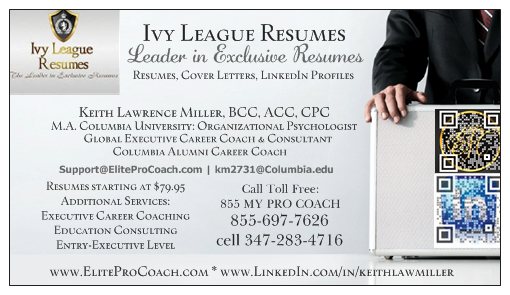
Click Here to Contact the Elite Pro Coach
The Elite Pro Coach Company is an exclusive provider of Action and Solution-Focused Executive Leadership Coaching & Development, Professional 360 Assessment Coaching, Elite Career Coaching for career advancement and development, Life Coaching for Personal and Professional Development.
Business Services
- We provide Ivy League Resumes, Ivy League Cover Letters, and Incredible Professional LinkedIn profiles to maximize personal and professional branding to achieve success at the next level for entry-level, Mid-Level, and Executive Levels.
- Mock Interviews for professionals and students, Business Consulting for start-ups, Entrepreneurs, and Fortune 500 companies, Emotional Intelligence development for Leadership, and Executive Career Coaching for maximizing leadership competencies in Corporations
- Social Media Marketing for maximizing online presence and developing the meaning of your business in the minds of potential clients
- We support development of targeted positive behaviors and support the elimination of negative processes and behaviors, in which, maximize the potential of your business, your people, and your money.
- Our Purpose: To develop better Leaders, better People, more Career Satisfaction & more Successful Living.
The finest business development consultant providing elite business development consulting and business coaching services which include management coaching, corporate training, career coaching, and executive coaching. Elite Pro Coach Company offers your own personal life coach, leadership coach, and coach training that leads to executive coaching certification endorsed by the Elite Pro Coach Company leading to an accreditation from the International Coach Federation (ICF).
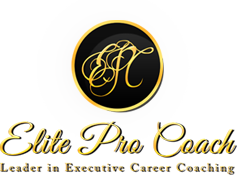
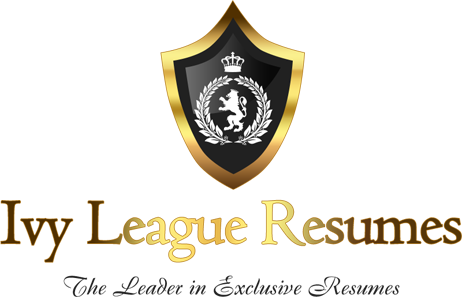









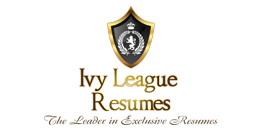
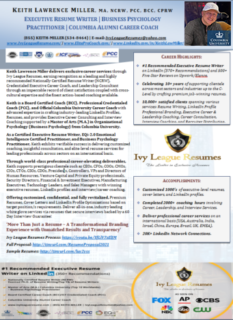

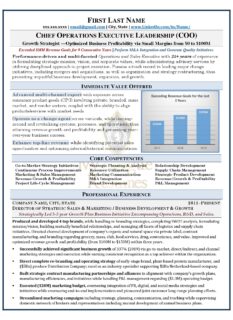
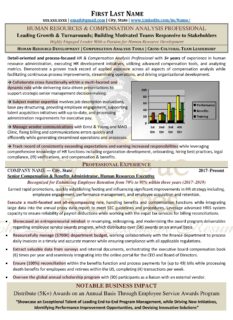
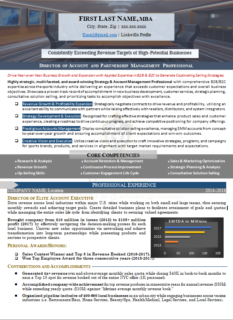

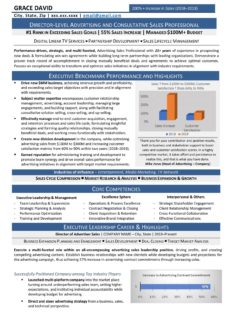
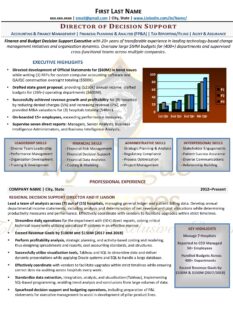
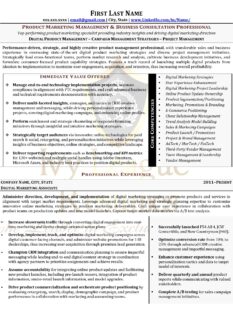



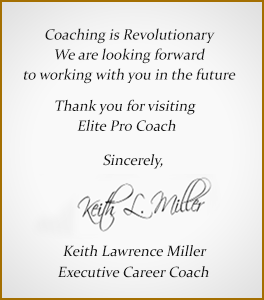
 Keith Lawrence Miller, Organizational Psychologist, Board Certified Coach (BCC), Professional Credentialed Coach (PCC), with subject matter expertise in executive career & leadership coaching and management consulting supported by a Master of Arts (M.A.) in Organizational Psychology from Columbia University.
Keith Lawrence Miller, Organizational Psychologist, Board Certified Coach (BCC), Professional Credentialed Coach (PCC), with subject matter expertise in executive career & leadership coaching and management consulting supported by a Master of Arts (M.A.) in Organizational Psychology from Columbia University.


